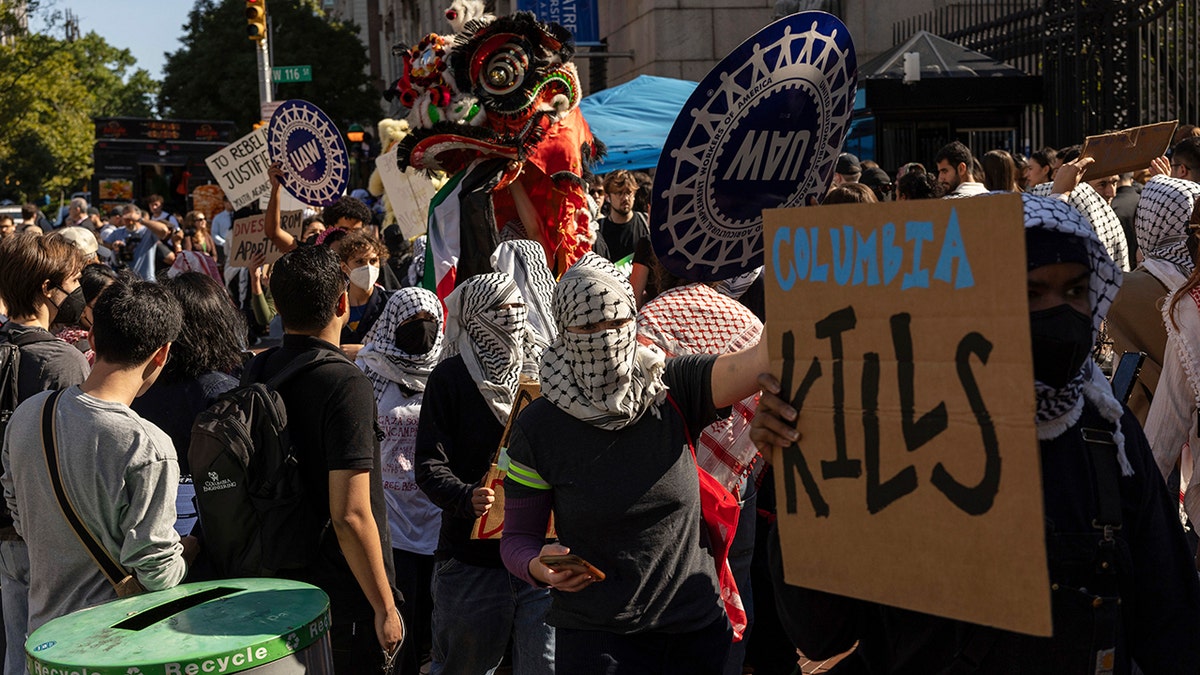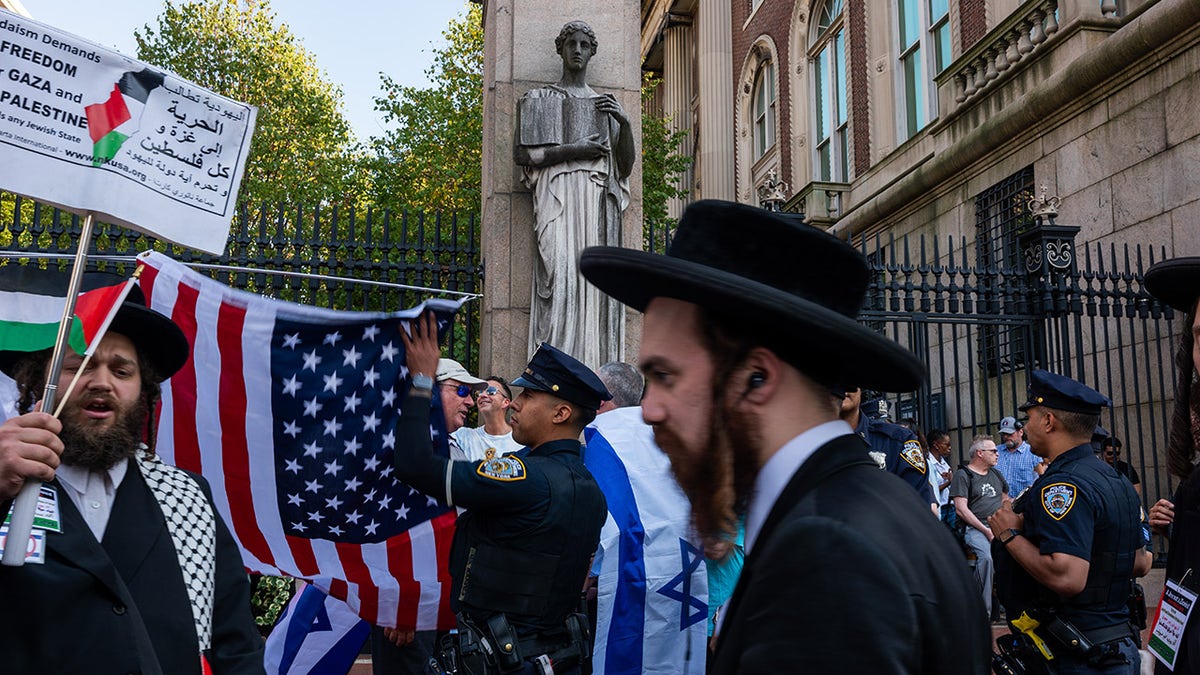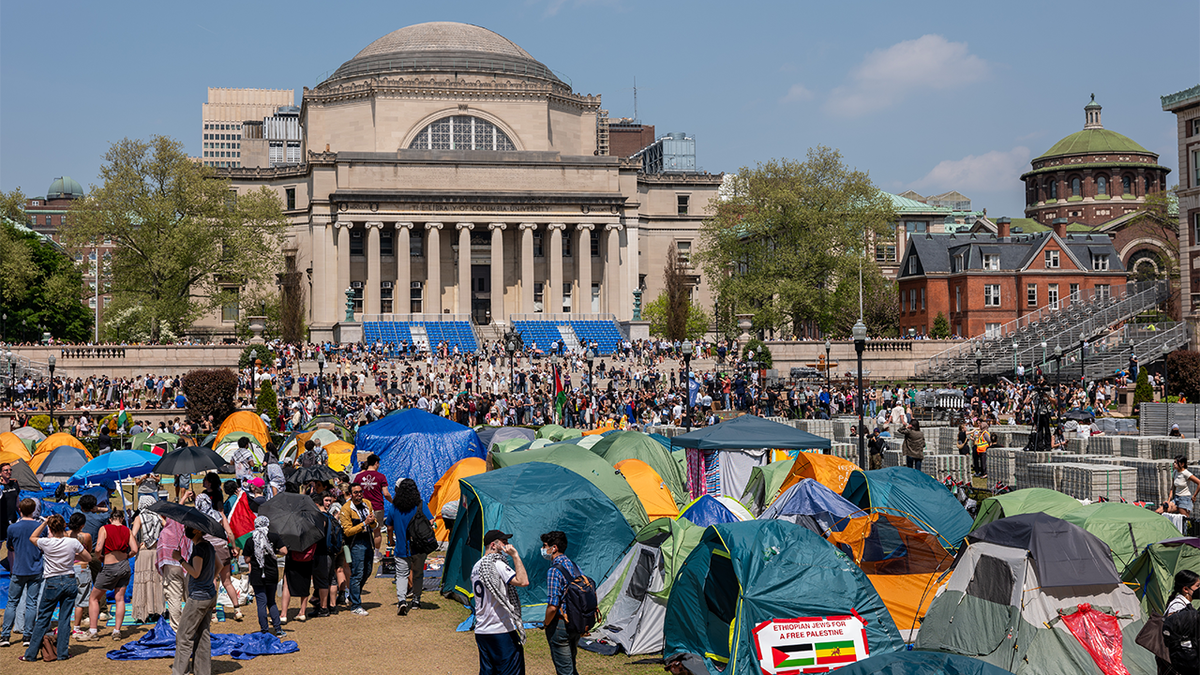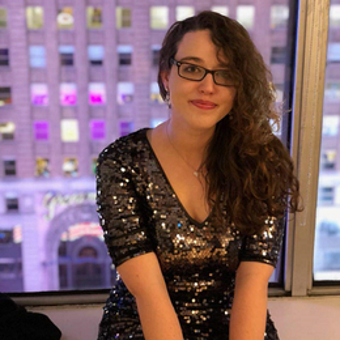I feel ‘constantly targeted’: Columbia University freshman
Panelists Bethany Mandel and Maya Cukierman join 'Fox News @ Night' to react to Jewish college students saying they don't feel safe on Columbia University’s campus.
As Columbia University began its new semester on Tuesday, the tense anti-Israel demonstrations that have divided its campus showed no sign of slowing.
On the first day of the New York City Ivy League's term this week, demonstrators gathered at the school's gates as an NYPD police drone hovered over their heads - although there were at least two arrests, according to the agency, police categorized the gatherings as "peaceful."
Cornell Law Professor William Jacobson, president of the Legal Insurrection Foundation and of EqualProtect.org, told Fox News Digital that he did not foresee campus relations improving soon.
"I think we're going to see a crescendo of intimidation and hostility as we approach October 7," he said, referring to the anniversary of Hamas' attack on southern Israel, during which Palestinian fighters took hostages, killed civilians and committed other war crimes.
"[Protesters have] already announced plans to hold celebrations [that day]."
"We're dealing with a cult on campus, and that's dangerous and difficult," he said.

Anti-Israel demonstrations continued in New York City on Tuesday on Columbia University's campus. (AP/Yuki Iwamura)
Columbia's former president, Nemat Shafik, resigned last month after her handling of protesters on campus "[took] a considerable toll on [her] family." Sparks had flown after Shafik, the school's third president over an eight-month period, called in hundreds of armed police officers to arrest over 30 protesters who had barricaded themselves inside an academic building.
Now, interim president Katrina Armstrong is tasked with maintaining order on the embattled campus. Since she took her position, new restrictions and changes have been made on campus in an attempt to control the conflict, according to the school's updated code of conduct.
Camping is now banned on the school's campus, with new signs and guards dotting the school's south lawns, according to Reuters. Gates to the campus that were kept open to surrounding streets for decades have been closed under a new system that restricts access to students, with guards only allowing those with Columbia IDs and preregistered guests to enter. Officials have set up fences and gates on wheels around campus, which will be used to cordon off small areas.
The changes come as the non-profit Foundation of Individual Rights and Expression ranked Columbia in 250th place - second to last - in its annual College Free Speech Rankings.

A small group of pro-Israel demonstrators and counter protesters gather in front of Columbia University on Aug. 27, 2024, to hold an "Unmask Campus Hate" protest at the start of the academic year in New York City. Columbia was the site of a monthslong tent camp of supporters of Palestine that was eventually broken up by the police. Many Israeli and Jewish students and faculty have complained and accused the university of allowing antisemitism to exist on the campus. (Spencer Platt/Getty Images)
For every conservative student on campus, there are five liberal students, according to the group's survey. Sixty-six percent of survey respondents reported that they had self-censored on campus at least once or twice a month.
"Surrounding my campus has been a 'doxxing truck' since October 2023, wherein students who express any criticism of Israel are identified by their full name and a giant picture under the label 'Antisemite of the Week' on a large truck with a digital screen," one rising junior told the surveyors.
"Students have reported this to the administration multiple times, and they did nothing for months. Friends of mine have also lost jobs and internship opportunities because of their political beliefs," the student said.
Another student said that "most professors and classes assume progressive ideas as matters of fact" and that "most of the curriculum is curated to fit this narrative . . . students in agreement are catered to."

Pro-Palestinian supporters continue to demonstrate with a protest encampment on the campus of Columbia University on April 29, 2024, in New York City. (Spencer Platt/Getty Images)
Jacobson said that in his experience at Cornell and based on what he has been told by Columbia students, a large part of protest culture is "faculty driven," with professors "liv[ing] out a fantasy that they're very revolutionary."
"In fact, they're very careerist, very bourgeouis. They don't sacrifice themselves at all, but they're happy to have the students sacrifice themselves," he said.
In an effort to combat hostility on campus, Columbia's Antisemitism Task Force published its second report, which details complaints from students who were harassed for their Jewish faith on campus.
"On campus, my friends have been spit on, been called like terrible, terrible names. A very close friend of mine was called a lover of genocide and then a lover of baby killing," one student, who wears a traditional head covering, told the task force. "This was only a couple of days after October seventh."
Scores more students reported "painful experiences of hostility" in the 91-page report.
"You have denialism, just like you have denialism about October 7," Jacobson said of the report and abysmal free expression ranking. "I think that's a good thing. It may not result in positive change, but at least people can no longer deny what's happening."
"It would not surprise me that schools with the most activism have the least free expression. The activism is intended to be intimidating," Jacobson said. "These are not protests where people are hoping to have a debate, they are protests meant to stifle a debate."
When asked for comment by Fox News Digital on the purported lack of free expression on campus, interim president Armstrong reiterated a portion of a recent message sent to students.
"Everyone needs to feel engaged, that their voices matter and that they belong here," Armstrong wrote. "Protests need to be managed effectively and fairly. That requires holding two truths at once. The truth is that our mission depends upon free speech and open debate. And the truth that our mission equally depends upon an environment free of harassment and discrimination, where our students can learn. There is no doubt that holding those two truths requires understanding and effectively implementing our policies, rules and procedures, just as it does in the society around us."













































